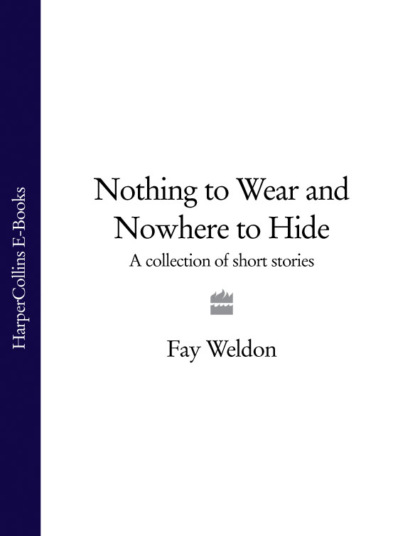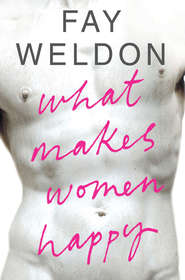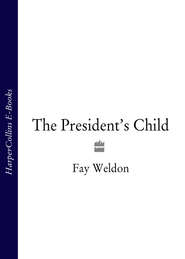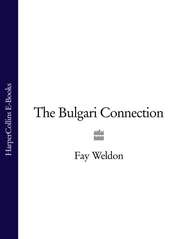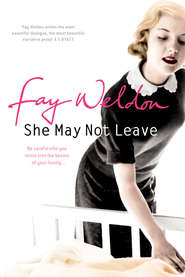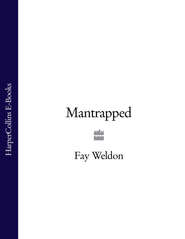По всем вопросам обращайтесь на: info@litportal.ru
(©) 2003-2024.
✖
Nothing to Wear and Nowhere to Hide: A Collection of Short Stories
Настройки чтения
Размер шрифта
Высота строк
Поля
In fact everyone—that is to say Hugh, and Clive, and Sarla, who already in the two months since she’d joined the London household, in preparation for the so far unconceived baby, had filled out and lost her derelict look and had her missing front tooth replaced by Oriole’s most expensive dentist—had looked so happy Oriole had given in. Job not baby. When Dree threw in one of the new little sporty Mercedes as the company car she stopped thinking about it. Most of the time. And perhaps if she was so easily put off she was not really cut out for motherhood. And Hugh had his lutes for babies. And she had him for a child. And so on.
The first time it happened it was Oriole’s thirty-third birthday. The three of them were having supper in the kitchen. They’d been in the house for two months. The designers and decorators had just moved out. Sarla was off to night school. They were eating bread and cheese and pickle. Oriole’s energy had for once failed: they’d been all set to go out to a celebration meal but when it came to it she just wanted to stay home.
‘Don’t worry about it, darling,’ said Hugh. ‘It’s hardly surprising. Of course you’re tired. Think what you’ve done during the last week, flown to Athens and back, and Frankfurt, and nobly stopped goodness knows how many more accidental babies being born, and dealt with the builders, not to mentioning burying your poor grandmother.’ Hugh hadn’t gone with her to the funeral. That was a sore point. It was true that the poor old soul had been out of the real world for so long the transition from life to death was a formality, and Oriole herself had cut down visiting to once every three or four months—well, five or six, but what was the point anyway—so she felt she couldn’t complain. She just felt bad and could have done with Hugh to hold her hand. ‘And I expect it stirred up a lot of unconscious stuff about the family disgrace,’ said Clive. ‘Funerals are like that. Bread and cheese and pickle is fine by me.’
Oriole’s father, in the rag trade, had committed fraud and been sent to prison for six months, and died there, when Oriole was sixteen, and Oriole’s mother, fraught with grief, shame, and despair, had followed him into the hereafter within months of that, which was why Oriole had never gone up to Oxford, for which she had a scholarship. She’d been the only child, and had to borrow money to bury them. Which she supposed you could dispose of in the phrase, ‘lot of unconscious stuff about the family disgrace’. He was right. The funeral had brought back into memory things better not thought about. That was why she liked to live in the present. Hugh and Clive could afford to live in the past. Way back to Elizabethan times, when their family first entered the records. It was just that musical instrument delivery dates were in the here and now and the other reason they couldn’t come to the funeral was, for Hugh, that some Monteverdi specialists were jumping up and down for the new lute they had commissioned, and for Clive, that a Californian computer millionaire wanted a virginal as a wedding present to his newbride, and for both of them every hour counted. And she hadn’t minded. It was just such a badly attended funeral. Herself, as the last remaining member of the family, only child of an only child, and a few kind nuns from the convent where her grandmother ended her days, all apparent links to the Jewish community gone. Because distant family had been lost too, in the camps in Germany. Another thing best not thought about. She hadn’t even gone to see Schindler’s List, the Spielberg film: Hugh and Clive had gone and come back red-eyed, and reproached her. They thought she was heartless: she might think she was only a quarter Jewish but it would have counted at the time—and she should at least take some notice.
The temperature had dropped, although it was mid June—this year her birthday had fallen on the longest day, the solstice. Oriole went to turn up the central heating. She’d just sat down at the table again when the cup lifted off its saucer on the dresser, and hurled itself against the wall behind her, with the crack and the sharp splintery sound you somehow didn’t forget, and the kind of stillness afterwards, as if everything sat extra quiet and wary.
‘That cup can’t have done that by itself,’ said Hugh, the first to speak. ‘Perhaps there was some kind of vibration.’
‘I did just turn the heating up,’ said Oriole. The first instinct, it seemed, was to deny that anything untoward had happened. ‘The plumbers were a nightmare.’
So they had been. A steam shower had struck them as strange and unnecessary, and a Jacuzzi bath for two as insane, and they’d fitted the plumbing in accordance with the adjectives in their heads. Oriole had had to threaten them with court action. There were no pipes running anywhere near the dresser but she didn’t want to think about that. Or that the cup hadn’t slipped and fallen, but had somehow got out of its saucer and hurtled itself across the room in an arc that swooped low past her ear and then rose to a higher point to hit the wall.
‘Could be subsidence,’ said Clive.
‘Could be,’ said Oriole. ‘If so, I’ll sue the surveyors.’
‘She would too,’ said Hugh proudly, and because Oriole was tired went to get a dustpan and brush. Oriole said the cup would have to go to be restored: Hugh thought it was beyond repair, but Oriole pointed out that a set of six Meissen cups and saucers in fine condition—at least to date—was truly rare and valuable and you had to measure them in thousands, not hundreds, of pounds.
‘Nothing should be measured by money,’ said Hugh.
‘I thought your parents were poor,’ said Clive. ‘If as you say your father stole to support the family and keep you in school uniform, shouldn’t he have sold the cups?’
‘They were my grandmother’s,’ said Oriole. ‘All she had of the past. She carried them over the mountains on foot, pregnant with my mother, and kept them safe.’
‘Then that’s understandable,’ said Clive, agreeably. ‘Though I’m afraid your gran had a very Mittel-European taste.’ Hugh said Oriole didn’t much like going into family history, and one way and another in the gentle wrangling the event got lost. It was isolated. Just something that happened. Except Hugh, picking up the pieces, had hurt his finger. Oriole asked Sarla to be careful when she dusted the dresser, and not to get the cups too near to the edge of the shelf in future. Then they forgot about it. There was too much else for everyone to think about.
The second time it happened was at the autumn equinox. They were eating in the dining room. The first cup had come back from the restorers that very day, accompanied by a little note saying what a particularly lovely piece it was and if she was interested in selling the set she knew a buyer who could house it appropriately. More or less suggesting that Oriole wasn’t a responsible owner of valuable antiques. So she and Sarla moved the whole set onto the sideboard in the dining room, being careful to place it safely well back against the wall. They were eating a lentil and carrot bake—Hugh and Clive had lately become vegetarians. That was okay by Oriole. These days she ate more than enough First Class protein on various airlines every week to satisfy her carnivorous needs outside the home. And Sarla bought steak for herself, which she ate in the kitchen. Clive had asked Sarla to join them in the dining room since she was now so much one of the family, but she wouldn’t. She liked to read novels while she ate.
‘Lucky old Sarla,’ Oriole said somewhat bitterly, over the lentil bake. ‘All I ever get time to read is company reports.’ ‘It’s your choosing,’ said Hugh. ‘We’re all free to do as we like in this world. And we are what we choose.’
Sometimes Chinese government officials would speak like that, in riddles, which somehow placed them firmly in occupation of the moral high ground, so if you weren’t careful you ended up giving more than you got.
‘And I’m the one who employs her,’ said Oriole, ‘so I’m the one who ought to ask her to join us at table, not anyone else,’ and there was a shocked silence while the brothers looked at her. ‘You don’t own people because you pay them,’ said Hugh. Tell that to Dree Pharmaceuticals, thought Oriole. ‘It’s just nice to have a woman around at mealtimes,’ said Clive. ‘And you know you’re so often away. Don’t be so dog in the manger, Oriole.’
And she was just thinking she might have been married to both of them, except she only went to bed with one of them, the way they both kept telling her what to say and do, when the second cup took off, a flash of gold glittering in the air, in its unnatural arc, and smashed. This time Oriole spoke first.
‘If that’s the one just back from the restorers I shall scream. Do you know what she charged me? Four hundred and eighty-three pounds.’
‘Oh, money, money, money,’ said Hugh. ‘No wonder things in this house don’t lie quiet.’
He was pale. The wound on his finger hurt quite a lot. It had lately given him septicaemia, and a couple of days in hospital, and Oriole found herself obscurely blamed, for not having just thrown the cup away in the first place but insisted on having it restored. Yet the brothers were the ones who valued the past. Their past, that was the trouble, just not hers.
‘Perhaps this is an earthquake zone,’ said Clive. ‘You do get minor shakes in this part of the country.’
‘A group illusion,’ said Hugh. ‘It must be. And we have been smoking funny cigarettes.’ Well, the brothers had. Oriole didn’t touch the stuff. She was allergic to marijuana: just the whiff of it could give her vertigo. They were careful not to blow smoke in her direction but didn’t offer to stop smoking. It soothed their nerves after a stressful day in the workshop. And it had been rather stressful lately; Sarla had told her in her now almost perfect English, last time Oriole had arrived home from a trip abroad. At a certain stage the wood used in making lutes has to be steam-heated and softened, to be curved into shape, and the damp and the heat would cause the wound to open up again and widen. Clive had tried to take over the process from his brother—that was the point of sharing the workshop, so they could help each other—but he wasn’t good at it. Virginals are foursquare and sharp-angled and straight-sided, nothing more than boxes, really. Clive was too strong and sudden: the wood felt the reproach and cracked and broke. To each brother his skill. And an orchestra called Early Ensemble were to do a major performance of Monteverdi’s l’Incoronazione di Poppea in Athens, and were waiting for delivery, and might start thinking about another, inferior, supplier. It was not the money that mattered, it was the loss to music.
The mended cup had stayed in place. A perfect one had self-destructed. Oriole picked up the pieces.
‘If you’re not careful,’ she said to the five cups and six saucers which remained, ‘I’ll put you in a bank vault to keep you safe, and you’ll never see the light of day again’. And she thought she heard a kind of sighing in the air, and wondered where she had heard it before. Her blind, blank grandmother, not telling day from night, friend from foe, the bad times from the good, not any more, would sometimes sigh like that. She didn’t say this to the brothers. If personalities survived, at what age did you reconstruct? Did you drift round as you departed the world, an old lady with no mind left, but supported in comfort by your granddaughter, or as the young pregnant girl who escaped from Germany, on foot over the Alps into Spain, carrying a bulky paper parcel? When the times were bad as they could be, but at least you had your youth, and a future if only you could secure it? And would her grandmother come back to haunt, or to help? Was she more pleased to have the comfort of the home, at the end, or displeased because Oriole had put her in a convent and failed to visit her enough? The nuns said she wasn’t conscious of the passing of time, and didn’t recognise her, she should not bother, and she hadn’t, and she should have, and it was too late. She almost wished the cup would get her like a slap around the ear, instead of just missing each time. It was odd how accepting you felt at the time these things were happening. Only afterwards did fright set in. That cup too went off to the restorers: you couldn’t let it get away with it, whatever either of the its might be. The brothers put it down to too much dope, and cut down.
The third time it happened was around the Christmas solstice. She and Hugh and Clive were doing the Christmas cards at the last moment, as ever. It didn’t seem to matter that she now had secretarial staff and untold wealth from stock—the Dree pill, which she now took herself—was becoming a kind of world staple, like cat’s-eyes in the road, and Oriole owned stock in it—you still found yourself having to do the Christmas cards at the last moment. They were sitting at the dining-room table. ‘You could let yourself off a quarter of them, Oriole,’ Clive said. ‘Since you’re a quarter Jewish you could quarter claim it wasn’t your festival.’ It wasn’t as if the brothers went to church themselves. They went to the midnight service on Christmas Eve to please their parents and that was about it. ‘I suppose I could,’ said Oriole, mildly, and at that point the third cup whistled through the air past her head and broke. The second cup was due back from the menders but hadn’t yet arrived. The area of plaster where the cups hit was ruffled and cracked. The builders would have to be got in yet again. This time no-one moved to sweep the pieces up. Hugh spoke first.
‘So it’s not a question of numbers,’ said Hugh. ‘It’s not that it wants to be three cups and six saucers, because now it’s four cups and six saucers.’
‘And it’s nothing to do with solstice or equinox,’ said Oriole, ‘because the exact solstice is tomorrow. It’s every three calendar months precisely. Make sense of that if you can. Though it could still be a statistical anomaly. Too small a sample.’
They were talking quite calmly.
‘It’s Oriole’s head they go for,’ said Clive. ‘It’s Oriole they’re
angry with. I think she’s got a poltergeist.’
‘People don’t get poltergeists as they get mumps,’ said Oriole.
‘And I’m too old. Blame Sarla if you want to blame anyone.’
But of course he wouldn’t. Sarla was sleeping with Clive. It had been on the cards for a long time. Neither of them showed any signs of moving out. Sarla went on eating in the kitchen, and Oriole went on paying her wages. It was absurd and embarrassing. Oriole had asked Clive if he meant to marry Sarla or if she, Oriole, was meant to go on paying her lawyer’s fees, and Clive had told her not to be jealous and neurotic, of course he wasn’t going to marry Sarla, or live with her, she was not his permanent cup of tea, or he hers, and to suggest they should marry to save money was surely a rather shocking thing. He and Sarla just enjoyed each other. He even said he’d learned the art of non-commitment from Hugh and Oriole, which would have upset and hurt her had she time to be hurt and upset.
‘I think Clive’s right,’ said Hugh. ‘I don’t think Sarla is the neurotic one round here.’
Betrayal! Oriole went to her bedroom and slammed the door. In her absence Sarla swept up the pieces and put them in the bin and joined the brothers for coffee. Oriole could hear them laughing. They were probably smoking more funny cigarettes, to combat the stress of the paranormal-which-could-not-be-denied. Sarla had found a reliable supplier at night school. Hugh came in and comforted her and told her how much he loved her, and said she mustn’t show her jealousy of Sarla, it was demeaning, and she’d rather upset Clive by being so mercenary. He fell asleep. She stayed awake. That was the third time.
Oriole wasn’t daft: she knew the limits of their relationship well enough. She gave Hugh what he needed, money, and he gave her what she needed, endearments. She knew she was an Essex girl made good and the brothers had been good to begin with; and that though both Hugh and she presented themselves to the world as being in love it wasn’t quite that: it just suited them both. If you asked her to choose between her job and Hugh she’d probably choose the job, just as Hugh would choose making lutes rather than her. And what was love anyway? If it existed, it did so in the same way as ghosts existed, an unreasonable anomaly in a reasonable universe. Her mother had loved her father and love it was that killed her. Her grandmother had loved her country, and loved its past, and its music, and even a stupid set of porcelain cups and saucers, far too gaudy and ornate for today’s tastes, enough to risk her life for, and what was her reward? Nothing. One daughter, dead before her time. One negligent granddaughter, and nuns at her graveside. Who will be at mine, wondered Oriole? And then she had to sleep too. She set the alarm for six-thirty.
The second cup came back with another desperate note from the restorer. Oriole had a glass cabinet made for the remaining cups and saucers. They looked better behind panes, and felt safer, and stayed quiet. She put the two extra saucers down for the cat’s milk, in an act of defiance, and noted their continuing existence with surprise. Cats’ saucers usually get trodden on, or fall from slippery hands or are knocked off steps. These ones, she supposed, were just good at survival. And the months went by and somehow they all just believed it wouldn’t happen again, except Sarla, who was clearly sceptical of their claims that the cups were self-motivating, and assumed they got thrown in a family row. And perhaps they did? Perhaps they were all just firmly in denial, as the counsellor at work whom Oriole was required to see every month—firm policy, to remove stress—assumed to be the case.
And then on Oriole’s birthday, her thirty-fourth, a whole year from the first occasion, the fourth cup came rattling out of the cabinet, breaking the glass as it came, nearer her ear than ever. Hugh and Clive insisted on calling their father the Bishop about an exorcist, the fifth cup followed, Oriole capitulated, Sarla refused to come and sweep up, and here Oriole was, sitting on the floor, picking up pieces again, while Clive and Hugh wondered if her quarter Jewishness would stop the normal procedures of the Christian Church.
Sarla, finished with Titania and the ass, deigned to come in to see what was going on. The sixth cup flew through the broken glass and whistled by her head and got the door behind her. Sarla began to shriek and wail. She sank to her knees; she called upon Allah in her extremis. Clive went to put his arms around her.
‘Get me away from here,’ Sarla wailed. ‘Stand not upon the order of our going,’ she wept into his manly jacket shoulder, over and over. ‘Stand not upon the order of our going.’ ‘Pascal’s wager,’ said Hugh to Oriole, ignoring the noise, putting down the phone. ‘Father says remember Pascal’s wager.’ ‘What are you talking about?’ asked Oriole. Sarla stopped being noisy to say, ‘Blaise Pascal, French philosopher, Pascal’s wager. You might as well be a believer. If it’s true and you believe you don’t go to hell. If it isn’t true, there isn’t a hell to go to. You can’t lose.’
Hugh and Clive regarded Sarla with admiration: more, Oriole felt, than they had ever regarded her, Oriole, even on the occasion when she had paid over a cheque for more than a million pounds, to pay for Hugh’s new state-of-the-art workshop. She stood up and went to the phone and dialled 1471 and then 3.
‘What are you doing?’ asked Hugh.
‘I need to speak to your father the Bishop,’ she said. She did. ‘This is Oriole,’ she said, ‘the woman you are glad is not actually your daughter-in-law, but only your son’s partner while he gets through his twenties. It is not my grandmother’s cups you need to send your magicians after, or my grandmother’s ghost, or this house, or the memory of my father who went to prison, it is I who need to exorcise your son. If the ghost of my dead grandmother comes to me slapping me round my ears, sacrificing everything she ever held dear, those bloody cups, why then I need her around. I am not a quarter Jewish, I am wholly Jewish, Jewishness comes through the mother’s side, not the father’s, and I am a direct descendant through the ages back to Israel. And I am not going to let this line stop here, after all that suffering, all that clambering out of horror, generation after generation, not for the sake of a few miserable Elizabethan lutes, some ugly Flemish virginals, or the comfort and convenience of your two idle sons. Call an exorcist around if you want, but I won’t be here to receive them. I am off to find a nice Jewish boy and have a baby.’
She slammed the phone down and went upstairs and emptied the Dree pills down the loo, and took her little sports car into the night and after that they heard only from her lawyers, writing from an address in north London.
The Site (#ulink_19125068-7577-5958-afb8-d0c639634037)
It was my cleaner Susie who first told me what was happening at the site. ‘Cleaner’ is the word Susie uses to keep me in my place: she seems rather more like a friend and ally, but she enjoys these social distinctions. She’s the policeman’s wife: she comes up to my rackety household and helps out because she’s bored, or so she says, and points out that I’m an artist and not a housewife by nature, as she is. Everyone should do what they’re good at in this life, she maintains. She, by implication, is good at housework: I am not.
I’m a professional sculptor. The children are with their father during term time, but I still needed help to keep domestic matters under control. I live in the village of Rumer in Kent, outside Canterbury, in a farmhouse. At the time I had two goats, two dogs, three cats, a pet hen, and an electric kiln in the barn. I did a lot of work in papier-mâchée, and it tended to creep out of the studio in shreds and scraps, and was even worse than clay for mess. If there’s too much mess I can’t concentrate. If there’s no food in the fridge I don’t stop to eat: then I’m too hungry to work. Susie kept things in balance. I believe her to be some kind of saint. Calling her the cleaner is rather like calling Moses the jobbing gardener because he smote the rock. If I say this kind of thing to her she seems immeasurably shocked.





